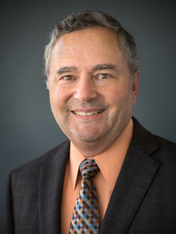Catalytic Conversion of Lignocellulosic Biomass to Biofuels and Bioproducts
 James A. Dumesic
James A. Dumesic
Micek Distinguished Professor in the College of Engineering and
the Michel Boudart Professor of Chemical and Biological Engineering
University of Wisconsin, Madison, WI
Friday, November 8, 2019
3:00 p.m., (Reception at 2:30 p.m.) 66-110
Massachusetts Institute of Technology
Abstract:
Research in the catalysis community has been carried out with the aim of developing new catalytic processes for the effective utilization of renewable biomass resources, relying extensively on knowledge gained from studies of catalytic processes in the petroleum and chemical industries. To advance further the potential of developing a bio-based economy for the production of fuels and chemicals from renewable biomass resources, it is necessary to address key fundamental challenges that are especially important for biomass conversion processes. Biomass feed stocks are heterogeneous in nature, requiring processes to convert a diverse set of molecular structures and functionalities and/or to produce distinct feed streams, e.g., carbohydrates versus lignin. Biomass-derived feed streams are highly functional with low volatility, requiring catalysts that are highly selective and operate in the liquid phase. We will discuss key fundamental scientific bases for addressing the aforementioned challenges, with examples that illustrate (i) the promotion of supported metal catalysts to improve activity, selectivity, and stability, (ii) the use of liquid solvent systems to enhance catalyst performance, and (iii) synergistic coupling between catalytic and separation processes in the liquid phase. As an example, we will report results for production of hydroxymethylfurfural (HMF) and furandicarboxylic acid (FDCA) from C6 sugars, which utilizes solvent systems comprising of mixtures of polar aprotic solvents with water. We will report results for reaction kinetics studies of the hydrogenation of carbonyl groups (e.g., acetone) over supported platinum catalysts, showing that the experimental results collected over a wide range of reaction conditions can be explained with micro-kinetic models that include effects of surface coverage on the binding energies and activation energy barriers of adsorbed reaction intermediates.
Bio:
James A. Dumesic earned his B.S. degree from UW-Madison and his M.S. and Ph.D. degrees from Stanford University, under the supervision of Professor Michel Boudart. He joined the Department of Chemical Engineering in 1976, and he is currently the Micek Distinguished Professor in the College of Engineering and the Michel Boudart Professor of Chemical and Biological Engineering. Dumesic has co-founded two companies (Virent and Glucan Biorenewables) and pioneered new processes for creating bio-derived fuels and chemicals. He and colleagues at the Wisconsin Energy Institute created an organosolv-type process for fractionation of lignocellulosic biomass for production of sugars and lignin that can be converted into biofuels and bioproducts.
Throughout his career, he has used spectroscopic, microcalorimetric, and reaction kinetics techniques to study the surface and dynamic properties of heterogeneous catalysts. He pioneered the field of microkinetic analysis, in which diverse information from experimental and theoretical studies is combined to elucidate the essential surface chemistry that controls catalyst performance. He has studied how aqueous-phase reforming of biomass-derived carbohydrates can be tailored to selectively produce H2 or directed to produce liquid hydrocarbons. Most recently, he has been studying the use of furan compounds, levulinic acid, and γ-valerolactone as biomass-derived platform chemicals for the production of fuels and chemicals. He has received a variety of awards and honors in the field of catalysis and chemical engineering. In 1998, he was elected to the National Academy of Engineering. In 2006, he received the Somorjai Award for Creative Research in Catalysis from the American Chemical Society. In 2007 he was awarded the Burwell National Lectureship by the North American Catalysis Society. In 2008, he received the Hilldale Award for distinguished professional accomplishment at the University of Wisconsin, and he received the inaugural Heinz Heinemann Award by the International Association of Catalysis Societies. He was elected as a Fellow of the American Academy of Arts and Sciences in 2009, and he was awarded the William H. Walker Award of the American Institute of Chemical Engineers for outstanding contributions to the chemical engineering literature. In 2011 he received the Michel Boudart Award for advances in catalysis at the North American Catalysis Meeting and at the meeting of the European Federation of Catalysis Societies. In 2012 he received the George A. Olah Award in Hydrocarbon or Petroleum Chemistry from the American Chemical Society, he was elected to the National Academy of Inventors in 2013, and he was elected to the National Academy of Sciences in 2014. In 2019, he received the ENI Award for Energy Transition.

